
PTSD: Post Traumatic Stress Disorder
VVA Referral for PTSD: Crisis Line (National) 800-273-2855 (#1) Suicide Prevention (Local): 503-402-2857 Non-Emergency PTSD Referal for Outpatient Counseling: Vet Center 503-688-5361 |
What is PTSD?
PTSD (Post-traumatic Stress Disorder) is an anxiety disorder that surfaces after experiencing a very dangerous, frightening, and uncontrollable event such as military combat exposure, a violent crime, a life-threatening accident, criminal or sexual assault, a terrorist attack, or a natural disaster.
Although the name PTSD emerged following the Vietnam war, this condition was evident in veterans of earlier wars. It was called “shell shock” (WWI) and “battle fatigue” (WWII).
How Common Is PTSD?
PTSD can happen to anyone. It is not a sign of weakness. A number of factors can increase the chance that someone will develop PTSD, many of which are not under that person's control. For example, if you were directly exposed to the trauma or injured, you are more likely to develop PTSD.
Vietnam War: It is estimated that about 30% of Vietnam Veterans have had PTSD in their lifetime.
Gulf War (Desert Storm): It is estimated that about 12% of Gulf War Veterans have PTSD in a given year.
Operations Iraqi Freedom (OIF) and Enduring Freedom (OEF): It is estimated that 11-20% of veterans who served in OIF or OEF have PTSD in a given year.
General Public: About 7 or 8 out of every 100 people (or 7-8% of the population) will have PTSD at some point in their lives.
PTSD Awareness
Greater understanding and awareness of PTSD will help veterans and others recognize symptoms, and seek and obtain needed care. A wide variety of symptoms may be signs that you are experiencing PTSD.
The following are some of the most common symptoms of PTSD that you or those around you may have noticed:
- Avoidance (amnesia, disassociation, numbing, hyper-vigilance, controlling behavior, and isolation)
- Reliving or re-experiencing (flashbacks, sleep disorders, overwhelming feelings, and overreacting)
- Victimization (distrust of others, abandonment, helplessness, and fear of change)
- Shame (feeling guilty, feeling as if you’re mentally ill, and feeling unworthy)
The only way to know for sure if you have PTSD is to talk to a mental health care provider. They will ask you about your trauma, your symptoms, and any other problems you have.
Treatment
Not everybody exposed to a traumatic event requires treatment. If left untreated, however, PTSD can affect individuals to the point that even their daily functions become seriously impaired. This places them at higher risk for self-medication and abuse with alcohol and drugs, domestic violence, unemployment and underemployment, homelessness, incarceration, and suicide.
Talk therapy and medication are proven methods to treat PTSD. For many people, these treatments can get rid of symptoms altogether; others find they have fewer symptoms or feel that their symptoms are less intense.
When PTSD isn’t treated, it usually doesn’t get better - and it may even get worse. It’s never too late to get treatment for PTSD.
More Information on Treatment Options
The federal VA has launched an online tool to help veterans evaluate treatment options for PTSD and encourage patients to actively participate in decisions about their care. This tool is available here: https://www.ptsd.va.gov/apps/decisionaid/
PTSD Information Brochures
You can download PDF versions of these brochures by clicking on the links provided.
| VA Publications | ||
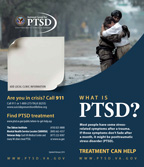 |
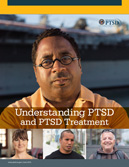 |
|
| What Is PTSD? |
Understanding PTSD and PTSD Treatment |
|
| Vietnam Veteran of America Publications | ||
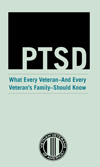 |
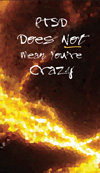 |
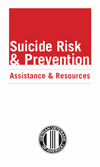 |
| PTSD: What Every Veteran - And Every Veteran's Family - Should Know | PTSD Doesn't Mean You're Crazy | Suicide Risk & Prevention |
| Love Our Vets | ||
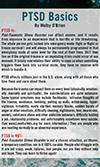 |
||
| PTSD Basics - What It Is & Isn't and Do's & Don'ts | ||
Where do I get help for PTSD?
If you think you have PTSD, you are not alone and help is available. Take a healthy risk and reach out for help.
Vet Centers
Vet Centers provide readjustment counseling and outreach services to all veterans who served in any combat zone. Services also are available for family members for military-related issues.
Vet Center staff are available toll-free during normal business hours at 800-905-4675 (Eastern) and 866-496-8838 (Pacific). To find the location of the Vet Center nearest you online, go to www.va.gov/directory
Online Tool for PTSD Treatment Options
The federal VA has launched an online tool to help veterans learn about effective PTSD treatment options.
https://www.ptsd.va.gov/apps/decisionaid
National Center for PTSD
information to help you find local mental health services and information on trauma and PTSD.
802-296-6300
www.ptsd.va.gov
Finding a Therapist
This page on the VA website lists resources to help you find a therapist.
http://tinyurl.com/finding-ptsd-therapist
Find a Peer Support Group
Information about Peer Support Groups from the National Center for PTSD
https://www.ptsd.va.gov/gethelp/peer_support.asp
Help for Families
Love Our Vets: Restoring Hope for Families of Veterans with PTSD
https://www.loveourvets.org/
PTSD Foundation of America
Hope and healing for the unseen wounds of war
1-877-717-PTSD (7873)
http://ptsdusa.org/
Military One Source
(for active duty military)
800-342-9647
www.militaryonesource.com